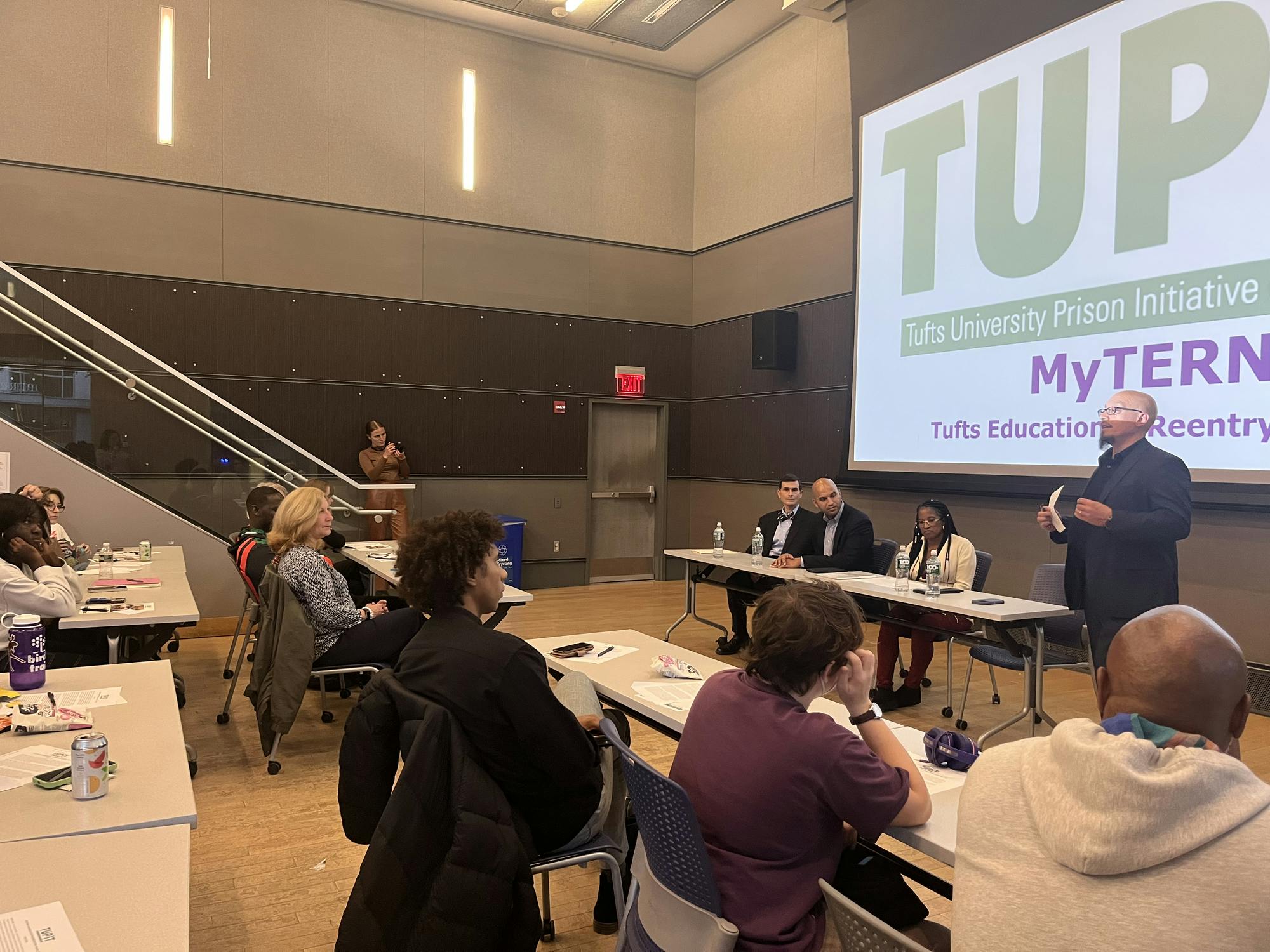The Petey Greene Program, Tufts University Prison Initiative of Tisch College and the City of Boston’s Office of Returning Citizens hosted a documentary screening and panel discussion on Oct. 18 titled “Overcoming Housing Barriers After Incarceration,” featuring social entrepreneur Yusuf Dahl.
When Dahl moved to Allentown, Pa. two years ago, his application to rent a house was denied because of a drug distribution sentence from 25 years prior. Frustrated that he couldn’t move to the school district he felt would best support his daughter’s education, Dahl wrote an op-ed for the Washington Post in 2022 and made a documentary with VICE Media called “Backgrounded.”
Dahl is now a co-founder of the Allentown-based Real Estate Lab and a trustee of the Petey Greene Program, which connects incarcerated and formerly-incarcerated people to pre-college education opportunities. Joining him on the panel were Leslie Credle, executive director of Boston-based Justice 4 Housing, and Greg Vasil, CEO of the Greater Boston Real Estate Board.
“There’s this disproportionality when it comes to incarceration and the collateral consequences that ensue as a result,” Dahl said. “We live in a society where if, in my case, you get caught with two ounces of marijuana, that’s a drug distribution charge and you can be legally denied housing for the rest of your life. But we don’t take that same approach to other mistakes people may make in life.”
In 1988, the segregationist Senator Strom Thurmond added an amendment to the Fair Housing Act that allowed landlords to deny housing to applications convicted of drug manufacturing or distribution. Still on the books today, the law has disproportionately impacted people of color.
In the documentary, Dahl describes how his housing application was denied, despite his credentials as a successful entrepreneur and Princeton graduate, because of the decades-old drug conviction from when he was a teenager.
“I spent the last 25 years working 16 hours a day to have the resources to put my family in this community,” he says. “Yet because of that decision, it doesn’t matter.”
Some progressive cities like Berkeley and the state of New Jersey have passed “fair chance” legislation that outlaws criminal background checks for housing applicants. But Thurmond’s amendment remains in effect in Massachusetts.
Vasil acknowledged that some landlords view a formerly-incarcerated tenant as “a risk.” Part of his organization’s advocacy work involves urging smaller landlords to “take the risk and try, because you never know — you may end up with an amazing tenant.”
Compounding that bias, Dahl said, more landlords are outsourcing the application review process to third-party screening companies whose algorithms automatically reject applicants with drug distribution convictions.
“The goal shouldn’t be to punish somebody for the rest of their life,” Vasil said, arguing that ostracizing formerly incarcerated people from normal life only increases recidivism.
Advocacy is important, Credle said, but changing the law is the only way to “get to the core issues,” otherwise “nothing is going to change.”
Justice 4 Housing not only provides home re-integration services and manages housing applications for formerly incarcerated citizens, but also works to enact policy for justice impacted people in Massachusetts, working towards a national model. The organization has helped house over 210 people in the last two years with a 0% recidivism rate.
Credle encouraged the audience to contact their legislators in support of a Justice 4 Housing Bill that will be brought up in the next state legislative session. House Bill H.1362/Senate Bill S.878, “An Act to Secure Housing for Returning Citizens,” would incentivize the creation of housing for formerly incarcerated people and establish a reentry program to connect people with housing resources.
According to Dahl, housing justice should also be tackled from the landlord’s side.
“We need to be forward-thinking,” he said. “How do we recruit the next generation of landlords — community builders — that actually reflects the communities that we live in?”






